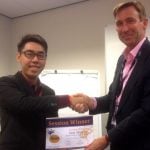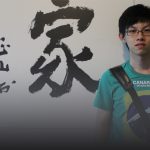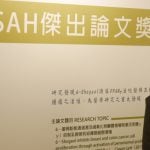On 26 July 2020, Flinders University in Adelaide, Australia, organized the first virtual seminar with International Medical University (IMU) in Kuala Lumpur, Malaysia to discuss and exchange experiences on Covid-19 pandemic between the two countries. It managed to engage over 40 participants from both institutions. Participants comprised of faculty members and students of IMU’s Master of Business Administration (MBA) in Healthcare Management and MSc in Public Health as well as faculty members and students from Flinders University’s Master of Health Administration in Australia, Singapore, and China. Commenting on the event, IMU MBA in Healthcare Management Programme Director, To’ Puan Prof Dr Safurah Bt Ja’afar said, “The objective was to initiate a collaborative work starting with the academic dialogue between the two universities on current issues.” The session kicked off with representatives from the two universities highlighting key points in each country’s Covid-19 journey so far, followed by multiple question and answer sessions facilitated by Prof Arthur van Deth, and an insightful talk by Mark Brommeyer on digital technology and Covid-19’s fillip to Australia’s digital technology scene. Special mention should be made to the impressive presentations by students from both universities, Dr Nandini Kumarasamy (IMU) and Karyn Paskett (Flinders University) on their engaging and informative overview and health management of both countries towards the Covid-19 pandemic.
| Speakers | |
|---|---|
| Karyn Paskett | Karyn highlighted Australia’s strategies from a unique perspective, a front-liner’s. The timeline presented showed that Australia and Malaysia shared many key milestones, like the exact date the first Covid-19 cases were confirmed. She went on to accentuate Australia’s strategy to reorganise and build their workforce in regions needing more help, especially Victoria where there was a spike in cases in the recent months. The government also put in additional travel restrictions, especially for those travelling from Victoria to neighbouring states, to prevent infection spread. Karyn went on to point out two important health management necessities in a pandemic: having clear policies and guidelines in place, and the importance of communicating these policies and processes to clients, staff, and governmental bodies. |
| Dr Nandinii Kumarasamy | Dr Nandinii Kumarasamy walked the audience through Malaysia’s crisis management timeline and emphasized a few key measures that contributed to Malaysia’s ‘flattening of the curve’. Strategies included border closure, mobilisation of digital technology for contact tracing, a Movement Control Order (MCO) and travel restrictions, clear guidelines and policies that were communicated to the public, and the growth of treatment and testing infrastructure as well as workforce. Contributing factors included the people’s inherent collective orientation of thought that led to social compliance and responsibility, strong leadership, cohesiveness between the government and the public, as well as clear and coherent communication. Malaysia’s current challenges and their corresponding remedial steps were also touched on briefly. |
Issues Discussed
A few key points were discussed throughout the 2-hour session. One of the issues that was discussed was the issue of community and compliance, seeing as people are more receptive towards new information in this era. As Karyn so rightly pointed out, large bodies of the communities are still complying with regulations and guidelines, but signs of fatigue are beginning to show within the community with the continuous wariness and movement restrictions. Similar to what is happening in Victoria, there has been an increase in the number of cases here when groups of people were unable to cope with the government requirements, resulting in a breach of standard guidelines. However, by and large, the population are still compliant to the protocols in place. Breach in the Standard Operating Procedures (SOP) are highly likely due to mixed messaging. There are restrictions in place for the number of people in a gathering, yet hundreds of people can be in a mall. Contradictory guidelines such as these are also seen in Malaysia and has resulted in complacency due to the public’s perception of a reduced threat of infection. It also highly likely the reason for the increase in the R0 (r-naught) value in Malaysia seen in recent weeks.
Points of interest raised
Prof Arthur raised an interesting point to highlight the importance of followership as much as leadership when tackling a public health crisis. He compared and contrasted the culture in Malaysia and Australia against the culture in the United States of America, where there is a strong streak of anti-authoritarianism, which has manifested as poor leadership translating into breakdown of management of a serious crisis. Dr Nandinii Kumarasamy is of the opinion that this is very true, and that the collective orientation of thought, in that proactively taking precautionary measures for the collective good of the community is the key to coming out of this pandemic.
Dr Maimunah from IMU also pointed out that taking a whole-of-government approach with the top leaders actively getting involved with the mitigation measures and having only one or two spokespersons helped streamline messaging and reduced the spread of false news. Also, it is important for healthcare leaders to collaborate with other sectors for a systemic approach.
A key question that was brought up during the discussion was how effective the crisis management plan was in Malaysia. Prof Adlina from IMU explained how the Movement Control Order (MCO) was put in place very early on, and there was collaboration with the armed forces to enforce it. Also, there were legal implications for those who breached the MCO; jail time and a hefty fine of RM1000. Because of this, the public were mostly compliant to the MCO and the numbers started reducing over the course of a few weeks. Globally, there has been talk regarding a vaccine being developed. Naturally, the topic of vaccine was brought up. While reports of its efficacy shows promise, to develop an effective one requires much knowledge on the disease itself. And since this is a new disease, we should not put all our eggs in one basket, hoping the vaccine will be the magic bullet that will solve this public health crisis. However, a vaccine will offer protection to those who need it the most. Mark Brommeyer brought up an interesting figure, in that the common flu numbers have been down by 99.7% since last year. This shows that the social distancing and hand hygiene measures play a role in the transmission of the common cold and should be made a habit by the public.
| Presentation on Australia’s Experience on Digital Health |
|---|
| One of the highlights of the seminar was a presentation from Mark Brommeyer, a Senior Lecturer in Health Care Management from Flinders University, addressing the Australian experience of using digital health and how the COVID19 pandemic has been the catalyst to the change in embracing Digital Health. He provided some context to Australia’s healthcare to explain how digital technology was being implemented there, as well as what has been done so far and the future changes required for the new normal in digital health. One of the measures Australia took in the direction of digital health was to implement a national-level electronic health record that has reduced the cost of diagnostical error and duplication of records, as well as empowered the people to be more accountable for their wellness. While explaining how healthcare was funded in Australia, Mark highlighted that a funding divide will result in an information divide. Since Malaysia is looking towards implementing a similar national health records system, we should learn from our Australian counterparts on the challenges they had, and anticipate a similar problem as well, especially when there is a gap between the public and private sectors of healthcare. During the Covid-19 pandemic, Australia had implemented telehealth services, private insurance rebates, virtual hospitals, and virtual Outpatient Department (OPD) visits. Also, the response to embracing digital health by the public in Australia has been very encouraging, as evidenced by their statistics. Like Malaysia, Australia had also launched a contact tracing app called COVIDSafe, and the number of users is similar to Malaysia’s, about 7 million. Mark then went on to highlight the sector-wide key changes needed to take digital health to the next level in Australia, like making sure the population is digitally literate, have access to the technology, and it being affordable. Following that segment on digital health, there were various issues brought forth like the gap between workforce readiness and need to produce a digitally ready organization, how to determine charges for a virtual clinic, and the rate of misdiagnoses that could put further burden on the healthcare system. |

Overall, it was a very insightful and informative session from both the Flinders University and IMU faculty. From this short session, it was quite evident that the pandemic has been a novel experience for both countries. There are silver linings to this pandemic. It has given both countries a fillip to accelerate the adoption of digital technology into healthcare and could possibly take both systems to a new level. Dr Nandinii Kumarasamy felt that it was a good session, and that there should be future collaborations on other topics, as it would be interesting to compare and contrast the characteristics of the different populations and healthcare systems.
Participants’ Feedback
Most of the participants enjoyed the sessions and looked forward to having more of such collaborative events in the future. They felt that the seminar was eye opening as to how other countries are dealing with the pandemic; as well as the challenges ahead.
Quoting one of the participants, Dr Jasdeep Singh who is an IMU MBA Healthcare Management student said, “Great collaboration of concepts on different approaches to manage the Covid-19 pandemic. Seminar such as this is a great platform of sharing ideas and seeing what works and where we can bring on further improvements”.
Written by Dr Nandinii Kumarasamy and Adam Hathsey Bronson Anak Mathew, MBA in Healthcare Management Students 1/20









